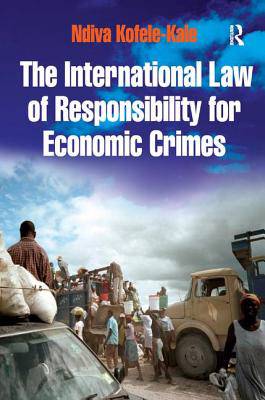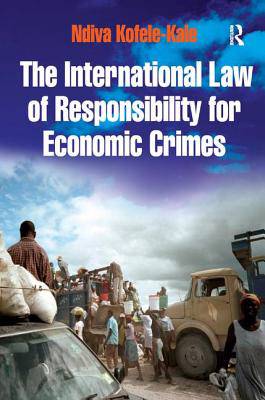
- Afhalen na 1 uur in een winkel met voorraad
- Gratis thuislevering in België vanaf € 30
- Ruim aanbod met 7 miljoen producten
- Afhalen na 1 uur in een winkel met voorraad
- Gratis thuislevering in België vanaf € 30
- Ruim aanbod met 7 miljoen producten
Zoeken
The International Law of Responsibility for Economic Crimes
Holding State Officials Individually Liable for Acts of Fraudulent Enrichment
Ndiva Kofele-Kale
Hardcover | Engels
€ 290,45
+ 580 punten
Uitvoering
Omschrijving
Focusing on the problem of indigenous spoliation in developing countries, this work explores the controversial issue of spoliation by national officials of the wealth of the states of which they are custodians. Due to constraints of the state system and the lack of appropriate substantive municipal law, efforts to punish those responsible for the economic rape of entire nations and to recover spoliated funds have been frustrated and rendered insubstantial. Taking a multidisciplinary approach and on the basis of data generated from empirical, cross-national research, this study makes the case for indigenous spoliation as a violation of international law. Substantially revised and updated to take account of recent legal and political developments, the second edition will be a valuable resource for academics, practitioners, NGOs, and policymakers.
Specificaties
Betrokkenen
- Auteur(s):
- Uitgeverij:
Inhoud
- Aantal bladzijden:
- 424
- Taal:
- Engels
Eigenschappen
- Productcode (EAN):
- 9780754647577
- Verschijningsdatum:
- 28/08/2006
- Uitvoering:
- Hardcover
- Formaat:
- Genaaid
- Afmetingen:
- 156 mm x 234 mm
- Gewicht:
- 766 g

Alleen bij Standaard Boekhandel
+ 580 punten op je klantenkaart van Standaard Boekhandel
Beoordelingen
We publiceren alleen reviews die voldoen aan de voorwaarden voor reviews. Bekijk onze voorwaarden voor reviews.











